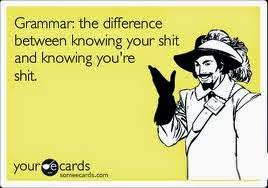 |
| Statler and Waldorf, the quintessential grumpy old men, from The Muppets |
 |
| Dana Carvey's Grumpy Old Man from SNL |
"Content" remains all the buzz in marketing circles – but Mr. Hoffmann takes umbrage with the phrase. Now before you dismiss him as a grumpy ex-ad man, at least hear him out. "Content' has become something so broad that it can encompass anything and everything from a lengthy white paper or case study to a selfie or a shot of last night's dinner.
Maybe
it’s time to reconsider how we use the word, or the concept of online content.
When the word is so all-encompassing, it loses a lot of impact. If you disagree
with the Ad Contrarian's point of view, at least you’ll have fun reading his thoughts on the matter.
Check out
adcontrarian.blogspot.com for more of Bob Hoffman’s opposing views on the
status quo of advertising today.














